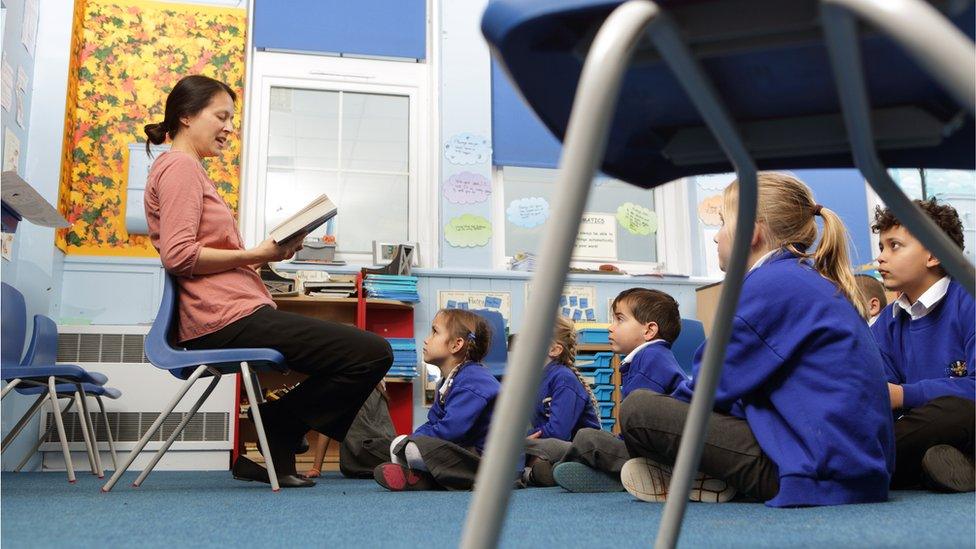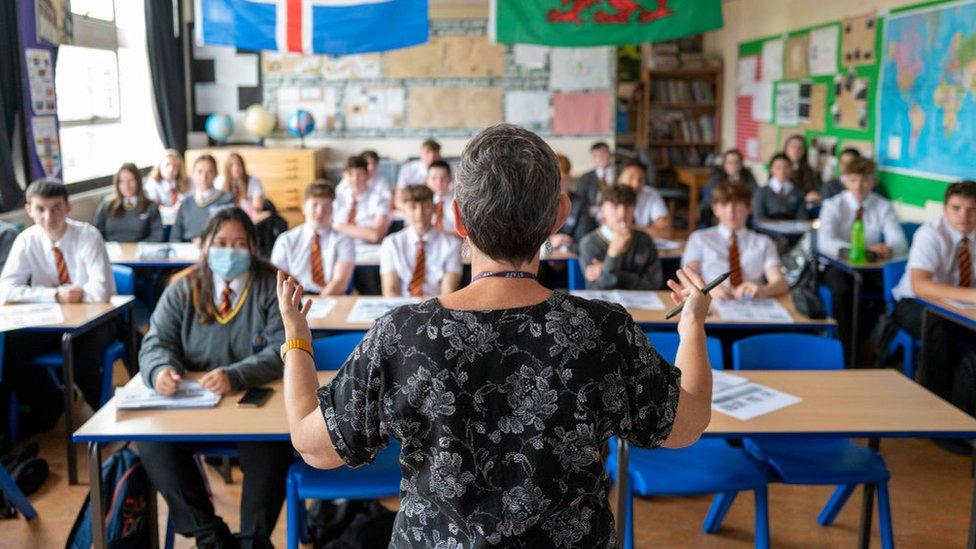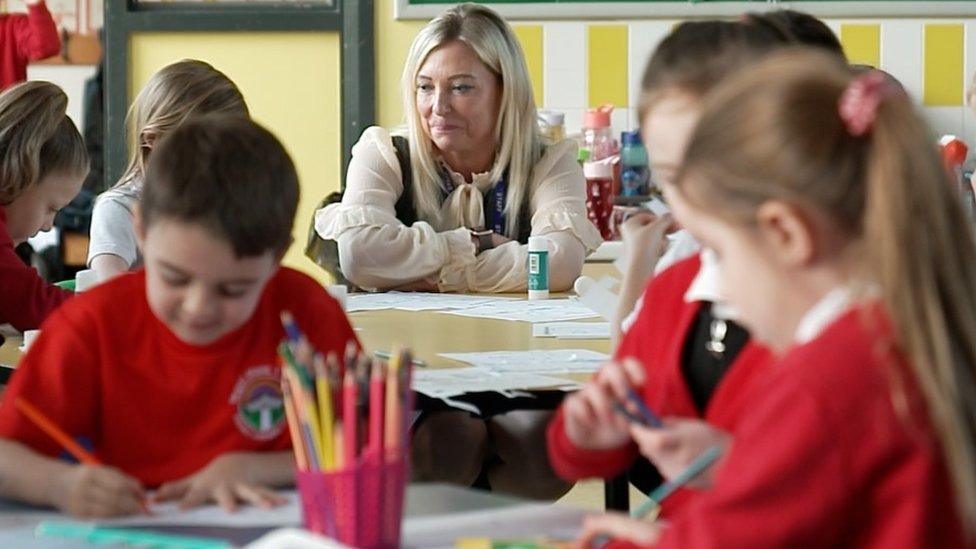Teachers' strikes: Wales' minister unsure if schools will close
- Published
WATCH: What do the teachers' strikes in England mean for parents?
Wales' education minister has said it is not yet clear if teachers taking strike action will lead to school closures and online learning.
Jeremy Miles said he was due to meet unions this week after members voted for action over a 5% pay offer.
He also pledged to resolve the pay dispute with unions to avoid teacher strikes.
The NEU, the biggest education union, said its members planned to walk out for four days in February and March.
Meanwhile, it has also been announced that staff across 150 UK universities will strike on 1 February.
The NAHT union - representing heads and other school leaders - is also considering what to do after members in Wales also voted for industrial action.
The NEU said teachers will walk out on 1 and 14 February, and 15 and 16 March, and similar action is taking place in England.
NAHT Cymru did not announce any strike days. It is expected the union would start with action short of a strike first, joining colleagues doing the same in Northern Ireland.
The NEU is seeking a 12% pay rise for teachers, while the NAHT wants a pay rise that matches inflation, plus 5%.
But Welsh teaching union UCAC said it failed to meet the threshold required to allow it to call a strike.
The organisation, which mainly represents teachers in the Welsh-medium sector, said a majority of those who took part in their strike ballot supported a walkout.
'We'll do everything we can'
It is the second education union to miss the threshold in its strike ballot, following NASUWT's result last week.
Mr Miles told BBC Radio Wales Breakfast ministers wanted to "deliver the best possible outcome that we can within the funding that's available".

It's not yet clear if strike action will lead to school closures and online learning, minister says
"We will do everything we can within the constraints that we face to resolve the dispute," said Mr Miles.
"What we don't know yet is what the industrial action means in practice. We don't know yet that schools will close.
"We'll be discussing this later on this week to see what the practical implications are in schools of the action that will be taken."
Asked if the strikes could mean a return to online working for pupils, Mr Miles said: "Individual schools will look at different arrangements to respond to the situations in their schools.
"We have existing arrangements in Wales where local authorities and schools will work together through these issues in order to minimise disruption to the education of children."
Teachers are also planning to strike in England, with action already under way in Scotland and action short of a strike in Northern Ireland.


If strikes go ahead next month, it won't hit all schools in the same way.
The level of disruption will depend on how many teachers and support staff in each school are taking action
If safe staffing levels can't be met, some will have to close - others will only see a limited impact so parents will depend on updates from their local school.
Now staff have voted to strike, government and council officials as well as school leaders will be assessing what measures might be put in place to keep lessons running if striking staff are absent.
In the meantime, there will be discussions between the unions and the Education Minister Jeremy Miles later this week.
Talks in recent weeks over NHS pay suggest we should not expect a quick fix.

James Evans, of the Welsh Conservatives, said ministers "have got the levers they need to actually pay teachers what they deserve and what they need to get them back in the classroom".
He accused Welsh ministers blaming budgets being squeezed in Westminster "as an excuse for everything when they can't come up with the goods".
Heledd Fychan, of Plaid Cymru, said there needed to be an "improved pay offer" from the education minister, "not just warm words".
"We've certainly seen that there is funding available to improve on the offer," she said. "We argue that there is unallocated funding that could go towards pay and should go towards pay."

A SPECIAL SCHOOL: Behind the scenes at a school like no other
ICONIC WELSH PEOPLE, PLACES AND THINGS: Kiri Pritchard-McLean unearths the best clips from the BBC Wales archive

- Published17 January 2023

- Published16 January 2023

- Published15 April

- Published1 December 2022

- Published14 November 2022
